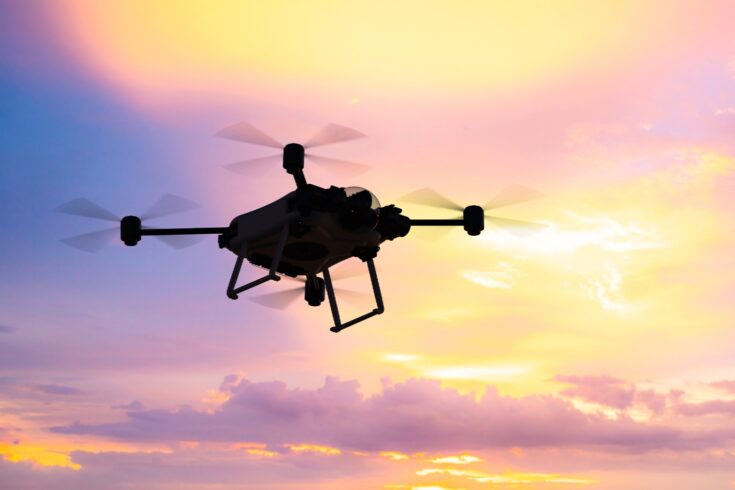Future flight challenge gives 48 UK projects a share of £33.5 million to kick-start the next revolution in aviation.
Over 40 new innovative projects across the UK will receive a share of £33.5 million in funding from the future flight challenge, part of the Industrial Strategy Challenge Fund, delivered by UK Research and Innovation.
Today we have announced the first 20 projects to receive over £7 million in funding.
Ground-breaking projects
These ground-breaking projects involve the UK’s leading:
- companies
- start-ups
- universities.
The projects are being funded to put the UK in the driving seat for developing the next aviation revolution.
The projects cover the use of drones capable of delivering COVID-19 medical supplies to remote areas, to technology to enable remote inspections of infrastructure and construction sites.
The projects will also tackle key infrastructure and air traffic management challenges to ensure the UK maintains its exceptional air safety record and delivers practical and integrated solutions.
Leading the way in the aviation revolution
Business and Industry Minister, Nadhim Zahawi, said:
As the UK leads the way in the aviation revolution, these bold proposals showcase the pioneering spirit of the UK’s aerospace and aviation industries in solving global issues from climate change, to getting vital medications to those in need.
This funding for the sector is a testament to the vital role aviation continues to play in maintaining our well-earned reputation for research and development excellence. I look forward to seeing these concepts being developed into tangible products over the coming months and years.
Gary Cutts, Future Flight Challenge Director said:
At this challenging time for the international aviation industry, it is a great testament to the UK’s drive and ambition that we had such a strong response to the first funded Future Flight competition.
The breadth, quality and creativity of the bids has been exceptional and the economic and social benefits offered are significant.
Further information
Winning proposals
Winning proposals include:
Windracers SWARM technology
This project will develop technology that allows multiple drones to fly in close formations for a variety of purposes including fighting fires and providing humanitarian aid.
Dock to Dock (D2D)
D2D will demonstrate an alternative to road transportation between coastal cities, developing a pilot project to deliver goods by air using clean energy: initially between Avonmouth Docks in Bristol and Cardiff Docks in Wales.
The project will focus on vehicle performance and the infrastructure necessary for hydrogen-powered electric aircraft which take-off and land vertically, and therefore don’t require runways.
NAPKIN
By looking at different aspects of air travel – including aircraft, airports, airspace, airlines, passengers and communities – NAPKIN will help accelerate the introduction of sustainable, low and zero carbon commercial flights.
For example, project partners Cranfield Aerospace, GKN and Rolls-Royce are developing conceptual designs for electric aircraft, while airport partners are using their expertise to assess the viability of plans for sustainable flights.
Drone Defence
Drone Defence Services and the University of Nottingham will develop sensor technology to track aircraft.
By monitoring all aircraft, Drone Defence aims to provide increased airspace awareness which will prevent drone misuse and enable drones to safely share the sky with other aircraft.
Gold Dragon (Llanbedr, Wales)
This project will develop sensor technology for unmanned drones, prioritising health and emergency services including the police, coastguard, and mountain rescue.
It is linked closely with skills development and science, technology, engineering, and mathematics engagement activities with Gwynedd Council and the Welsh Government.
In addition, a recent economic impact assessment estimated that successful development at the Snowdonia Aerospace Centre could contribute over 500 jobs to the local area.
Cornish Drone Airbridge
Using drones, this project will develop technology capable of delivering personal protective equipment and COVID-19 testing kits to vulnerable rural communities in Cornwall and the Isles of Scilly.
MediDrone
MediDrone’s project will develop a network of small drones following paths between medical facilities, acting as high-speed shuttles for small medical packages. This will improve the delivery speed of critical medication, and limit human contact with supplies to reduce the risk of transmitting COVID-19 to vulnerable patients.
BVLOS Drone Comms for COVID-19
This project will help improve contact between drones and their control rooms when flying outside the operator’s line of sight. The creation of such technology would help realise the use of drones to deliver medical supplies to patients and collect medical samples.
Remote industrial inspection by drone
As the pandemic has meant many have had to spend time off work due to illness or work from home, this project aims to enable remote inspection and monitoring of industrial sites by drone.
By reducing workers’ exposure to the virus, this will help increase worker productivity and safety, thereby reducing project cost and risk.

